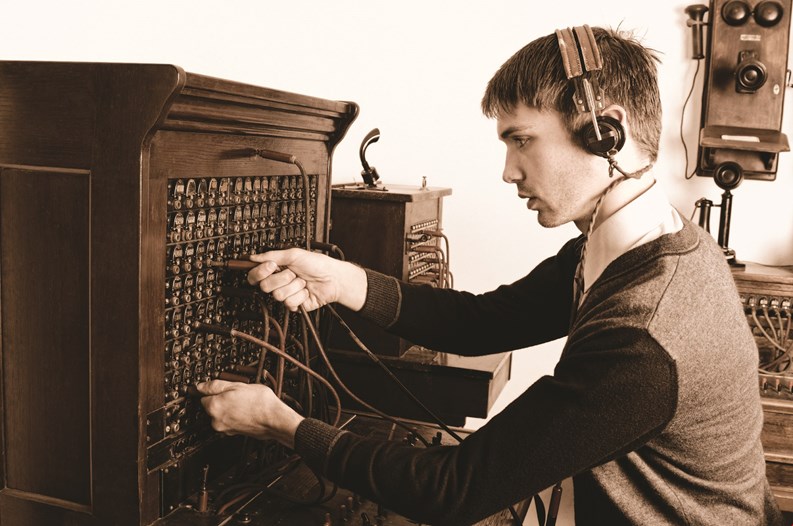Your co-op or your condo unit may be your home, but to many others, your building is a workplace.
Whether they’re managing a small, tight-knit walk-up building in Manhattan, or a sprawling co-op development in Queens or Staten Island, property managers handle a wide array of tasks from the physical to the administrative.
While many of these jobs can be described in concrete terms, (send out monthly bills, attend meetings, file paperwork) one important component of the work is less easy to pin down: The actual management of people, specifically, building staff members. A manager might just have to coordinate operations with a single superintendent, or work with any number of doormen, porters, custodians, and amenity-related staff (such as fitness center attendants, for example), depending on the size and nature of the community. Even a great manager may not be an expert in human resources management but it’s an incredibly important piece of their job, and if done well, the entire community will run more smoothly.
Human Capital
When property managers can maintain and improve their staff management skills, then their job and their staff’s jobs will become easier and more harmonious.
“The vast majority of our building staff are dedicated, very hard working and intelligent,” says Peter von Simson, CEO of New Bedford Management Corp. in Manhattan. “However, like all people, some have personal problems, financial issues, substance abuse—we have seen it all.” So, like all good managers, this needs to be dealt with in a sensitive, timely manner so that a building can run smoothly.
The first thing that a building or association manager should understand is that human resources administration in the context of multifamily property management is very similar to human resources in other corporate environments, says Tina Thiakodemitris, a senior property manager with Ferrara Management Group, Inc. in Armonk.
“It entails knowing the steps for hiring qualified candidates, proper onboarding and training, through the exit interview as a result of either a retirement, resignation or termination due to disciplinary matters. I truly believe in the importance of reducing employee turnover, encouraging employees to become established in their jobs, and allowing...for them to be promoted from within the organization when those opportunities arise.”
But there’s one major difference that sets buildings apart from companies when it comes to human resources—and this difference adds a layer of complexity in managing building employees: They’re not technically employed by the managing agent or company, says John Piastra, vice president of Associa New York, a large association management firm with offices nationwide, including two in New York City.
“They’re employed by the board,” Piastra says. So while the building staff— such as the superintendent, the doormen and all the maintenance workers—do work at the behest of the management company, it’s the board who chooses them, and it’s the board that has the ultimate choice in retaining—or firing—them. But that’s not all. “In New York, most of the building staff is unionized, and that’s negotiated by the co-op board and by the union,” Piastra says. “You’re subject to the terms of the bulk contract.”
As a managing agent, you have to follow the rules set for you by the unions, and while you are a proxy for the staff members' employe—the board—you cannot make your own rules, nor can you make unilateral decisions when it comes to the building or HOA's employees. The board must be consulted, and their wishes carried out.
Support and Respect
Despite these boundaries, it’s possible to run a harmonious, cooperative community by avoiding common mistakes made by inexperienced or inattentive managers.
Thiakodemitris says that when she’s taken over the management of a building, she’s often heard from the staff that the previous manager couldn’t see their point of view, or didn’t take the time to listen to their concerns either with issues relating to the property’s operation, or with staff-related matters.
“I find that the majority of a property’s staff members do take pride in their work, and feel a responsibility for ensuring that it runs smoothly but they don’t always receive additional support through the manager,” Thiakodemitris continues. “Other times, I have found that the concerns they express may actually end up being [an issue] with that staff member him- or herself, and even if they are given the opportunity to show how they can perform, the results have not improved.”
In order to avoid these types of circumstances, the manager should be able to communicate with their staff members effectively. That means clearly expressing what you expect as a manager, but more importantly, giving attention to and consideration of staff members' needs and concerns.
“Listen not only to the employees, but to the board members as well as to the residents of the property,” Thiakodemitris says. “You will start to compile data on how you, as a manager, can improve staff relations, which will ultimately improve the property.”
For example, Thiakodemitris at one point had the opportunity to manage a property where the superintendent was more of a worker than a leader. Instead of delegating tasks, he did all the jobs himself, and this led to an atmosphere where the other staff members didn’t respect his position within the organization.
“Through continual counseling with the superintendent to help him understand clearly what was expected of him, having scheduled meetings with the staff members in which the super had a significant role in organizing as well as participating...and by giving him the authority on certain decisions that were within his purview—we started to see a change in how he was working, as well as how the staff members perceived his position.”
Day-to-Day Administration
According to Simson, other common mistakes made by inexperienced managers involve administrative tasks, like payroll, overtime, and so forth. It’s very important for all management to maintain detailed time sheets for all staff managers, and for them to diligently track requested overtime—approved and potentially not approved, he says.
Board-approved, written job descriptions for each position also ensure that expectations for the positions are aligned. “Managers make a mistake when they do not communicate effectively with the resident superintendent, and when they let unfounded staff grievances gain traction out of concern with union involvement,” Simson says.
In his experience, the shop stewards of 32BJ-SEIU and other unions will work with managers to correct staff performance when these are properly documented and discussed.
This is key, Simson says. “I think managers also make a mistake when they rely on board members to intervene to directly discipline the staff for whatever reason,” he says. “Once the staff sees that a manager prefers to stay on the sidelines and defer to the board, they will no longer be manageable by the agent.”
That’s why it’s important to have a clear chain of command that’s always followed, Thiakodemitris says. The property manager is responsible to manage the staff, and the board members should have input through the property manager. “Board to manager, and manager to staff—and then the reverse chain in the similar fashion,” she says. “The board does have their finger on the pulse of what is expected at their property from listening to their shareholders or owners, and this will help.”
Sometimes however, it’s a little trickier, Piastra says. In a building, there’s typically a super or a resident manager (that’s when the managing agent lives in the building). That is the person who may oversee the staff on a daily and/or nightly basis. In other buildings, that function will fall to the manager.
“Establish hierarchy on a per-building basis, and from there, establish the terms of the contract in terms of discipline and the job descriptions,” Piastra says.
The main unions dictate the duties that the positions can have, and they explain what can and can’t be done within those positions.
By following this protocol, everyone is on the same page as far as expectations and responsibility, says Thiakodemitris. In her experience, clear expectations result in better service for residence, happier employees and ultimately a better-functioning building.
The board isn’t without their duties when it comes to the staff, however.
The board is the final arbitrary when it comes to any issues, though they may (and should) look to the management as the advisor, Piastra says. Management is also responsible for motivating their staff, though each staff member will be motivated by different incentives.
“Some may be motivated by the fact that I show that I am concerned for the property, and will take the initiative to make improvements in the way the property is run,” Thiakodemitris says. “I am willing to go outside of my job description to get the job done—this could be by picking up a piece of paper in the lobby area—to dealing with a resident who no one else may wish to deal with. If staff members see that the manager can do the job, it may be enough motivation to get them to do the job.
A Matter of Motivation
It’s essential that a motivated manager helps get an apathetic, otherwise dysfunctional building staff back on track—but first they need to figure out the issue, Piastra says.
“Does the super need motivation? Sometimes, it’s a question of saying, ‘Let’s do this, this and this, and if it works, maybe there’s an incentive in it for you,’” Piastra says. “Determine where it’s coming from, what’s the problem. If the staff isn’t happy, it boils over to the residents. There’s no easy answer, but the easy thing is to figure out what or who is creating a problem.”
Unfortunately, there will always be a few employees who are motivated by documented write-ups for failure to perform specific duties, which can ultimately lead to progressive discipline and termination if they can’t be corrected, Thiakodemitris says.
Sometimes, however, there simply may be no happy solution. When it comes to handling the firing—or the scheduling, performance reviews or other day-to-day human resources work within the role of the manager, everything that’s not learned on the job can be taught via courses, Piastra says. His company’s payroll is done through ADP payroll, and they offer human resources seminars as a service.
Thiakodemitris says that many of the skills she learned were through life experiences within her office training sessions for managers, as well as via courses through the Institute of Real Estate Management (IREM). There are also other general human resources management classes offered at many local city colleges.
“It’s very important to know and understand what your local government, state and federal rules are, and to understand your union contract,” Piastra says. “The courses also deal with overtime—and what you can and can’t do as far as absenteeism.”
Anyone involved in managing a multifamily building knows it's a complex job—there's structural maintenance, paperwork, and all kinds of administrative tasks to stay on top of. Human resources and staff management are just as crucial to the smooth day-to-day operation of a co-op or condo as handling finances and legal issues. By keeping respect, communication, and clear expectations front-and-center, managers and boards alike can position themselves and their staff for success.
Danielle Braff is a freelance writer and frequent contributor to The Cooperator.







Leave a Comment